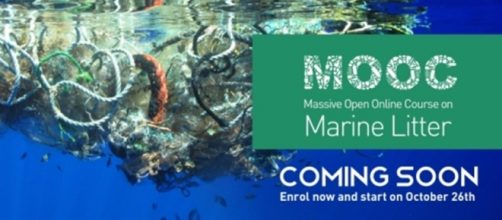Over 8 million metric tonnes of plastic waste are dumped in the oceans annually. Plastic waste makes up the bulk of litter dumped in our oceans. Other litter includes every conceivable item the planet produces. The full range of debris dumped includes everything frommedicine bottles to military hardware and old fishing nets.
The debris gathers into giant clumps and have become a pelagic feature of the global oceans in amounts that outnumber live plankton. Much of this debris ends up on the beaches around the world. The plastic pollution alone harms or kills millions of marine animals every year.
The United Nations Environmental Programme (UNEP), together with the Open University of Netherlands have designed a free beach litter course. It is free to enroll and UNEP are encouraging people to sign up for it. The free course is aimed at increasing awareness of the beach litter problem and will stimulate global solutions. Registration is open and the course begins on 26 October 2015.
According to UNEP, "students can initially enroll in a two-week leadership track and continue with a six-week expert track. The leadership track introduces marine litter concepts and various strategies for preventing and reducing marine litter. The expert track focuses on the acquisition of more in-depth knowledge, insights and skills relating to the prevention of land-based and sea-based sources of marine litter.
Moreover, the MOOC strives to stimulate interaction between different stakeholders who combat marine litter." - Source UNEP
Over 560 universities, who are members of the Global Universities Partnership on Environment and Sustainability (GUPES), are encouraging their faculty and students to enroll.
Those wishing to take the coursecan join in to qualify for their certificate of participation. TheUNEP Education website explains more about the course.Members of the public are able to enroll directly through the Open University by visiting their enrollment page.
This course is a positive step forward in the fight against water pollution. Awareness of the problem has received attention across the globe largely through the efforts ofUNEP's Goodwill Ambassador Jack Johnson, a popular musician and environmentalist.

